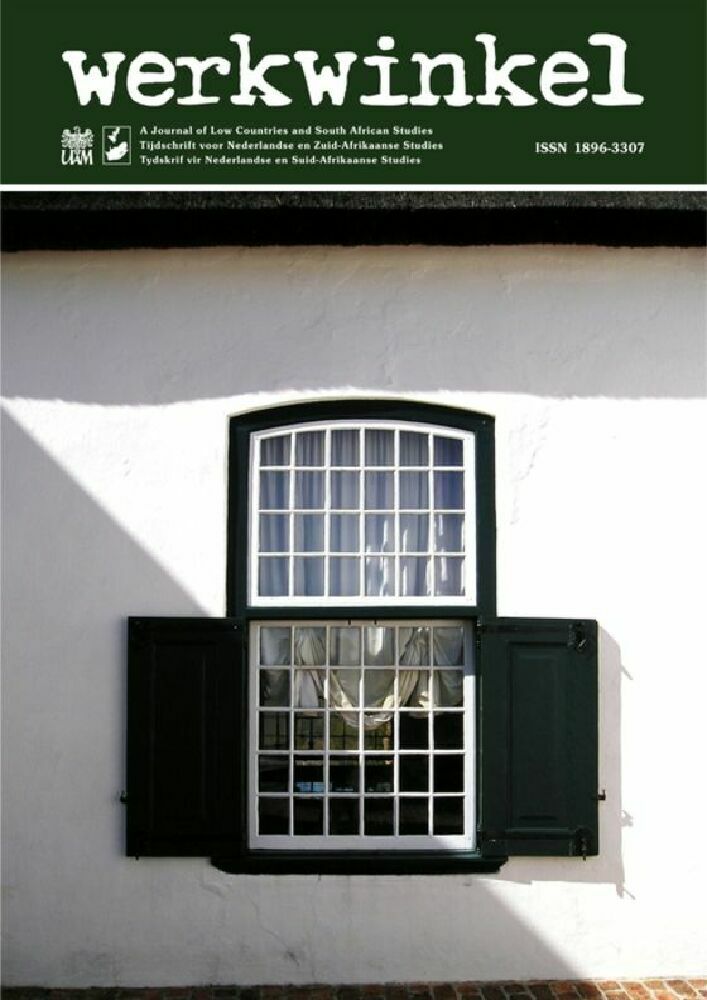Abstract
Intercultural communication has become a scientific discipline which aims at improving communication during intercultural contacts by means of fostering the intercultural awareness and competence of the interlocutors involved within the intercultural communication process. In view of the intensifying European and international contacts the interest for this competency has grown during the last decades. This can among others be observed within foreign language teaching, but also in the training of translators at university level where new didactical approaches and teaching methods are being developed in order to improve the intercultural of future translators. This article presents a preliminary collaboration between the John Paul II Catholic University of Lublin and non-profit organization of translators, as well as the theoretical and practical backgrounds of a project which that they envisage to realize in future in order to transform its participants into intercultural competent translators.
References
Beeby, A. 2000. “Choosing an Empirical-Experimental Model for Investigating Translation Competence: The PACTE Model.” Intercultural Faultiness. Research Models in Translation Studies I. Textual and Cognitive Aspects. Manchester: St Jerome.
Bell, R.T. 1991. Translation and Translating. Theory and Practice. London/New York: Longman.
Byram, M. 1997. Teaching and Assessing Intercultural Communicative Competence. Clevedon: Multilingual Matters.
Catteuw, P., en M. Coutuer. 2005. “Een portfolio voor interculturele competenties. Zoektocht naar een referentiekader interculturele communicatie.” Mores 6: 15-20. 23 May 2015. <http://www.prosper.ro/EuroIntegrELP/materiale%20pentru%20site%20EuroIntegrELP_12%20sept/Articles/NL_KdG_Article_Mores.pdf>.
Deardorff, D.K. 2006. “Identification and Assessment of Intercultural Competence as a Student Outcome of Internationalization of Higher Education in the United States.” Journal of Studies in International Education 10(3): 241-266.
Deardorff, D.K. 2008. “Intercultural Competence. A Definition, a Model, and Implications for Education Abroad.” Developing Intercultural Competence and Transformation. Theory, Research, and Application in International Education. Ed. Victor Savicki. Sterling, Virginia: Stylus Publishing, LLC. 32-52.
“Europass.” z.d. 15 May 2015. <http://europass.cedefop.europa.eu/nl/home>.
Eyckmans, K., en W. Segers. 2010. “Systematische verwerving van zoekcompetentie.” Tolk- en vertaalcompetentie. Onderwijs- en toetsvormen. Eds Winibert Segers, en Chris Van de Poel. Leuven/Den Haag: Acco. 89-94.
“Gemeenschappelijk Europees Referentiekader voor Moderne Vreemde Talen: Leren, Onderwijzen, Beoordelen.” 2013. 2 Apr. 2015. <http://taalunieversum.org/publicaties/gemeenschappelijk-europees-referentiekader-voor-moderne-vreemde-talen-lerenonderwijzen->.
Gonzalez Davies, M., C. Scott-Tennent. 2005. “A Problem-Solving and Student-Centred Approach to the Translation of Cultural References.” Meta 50(1): 160-179.
Holliday, A., M. Hyde, en J. Kullman. 2004. Intercultural Communication. An Advanced Resource Book. London/New York: Routledge Applied Linguistics.
Jooken, L. 2004. “‘Impossible to translate, Arno. Dutch is a secret language, you know.” De vertaling van culturele referenties in All Souls’ Day.” Taal en cultuur in vertaling. De wereld van Cees Noteboom. Eds S. Evenpoel et al. 53-67.
Kalsbeek, A. van. 2003. “ Taal en cultuur of cultuur en taal?” Cultuur in taal. Interculturele vaardigheden voor docenten Nederlands aan anderstaligen. C. van Baalen, L. Beheydt, en A. van Kalsbeek. Utrecht: ncb. 61-102.
Kalsbeek, A. van. 2008. “Intercultural competences for Foreign Language Teachers.” 2 Feb. 2015. <http://intt.uva.nl/binaries/content/assets/subsites/institute-for-dutch-as-a-second-language/map-1/interculturele-competenties-in-het-nt2-onderwijs-auteurskwaliteiten-of-docentvaardigheden.pdf>.
Kalsbeek, A. van. 2010. “Cultuur in het onderwijs Nederlands als tweede taal: auteurskwaliteiten of docentvaardigheden?” Klassiek Vakwerk II. Achtergronden van de NT2-lespraktijk: lezingen conferentie Hoeven 2010. Ed. B.H. Bossers. Amsterdam: VU Reprografie. 193-203.
Kramsch, C. 1993. Context and Culture in Language Teaching. Oxford: Oxford University Press.
Meijer, D., en J. Noijons. 2008. Gemeenschappelijk Europees Referentiekader voor Moderne Vreemde Talen: Leren, Onderwijzen, Beoordelen. Den Haag: Nederlandse Taalunie.
Nord, C. 2005. Text Analysis in Translation: Theory, Methodology, and Didactic Application of a Model for Translation-oriented Text Analysis. 2nd revised edition. Amsterdam-New York: Rodopi.
PACTE. 2003. “Building a Translation Competence Model.” Triangulating Translation: Perspectives in Process Oriented Research. Ed. F. Alves, F. Amsterdam: John Benjamins Publishing Co. 43-66.
PACTE group. 2005. “Investigating Translation Competence: Conceptual and Methodological Issues.” Meta 50(2): 609-619.
“PACTE research group”. z.d. 22 Apr. 2015. <http://grupsderecerca.uab.cat/pacte/en>.
Peeters, I. 2003. “Comment optimiser la compétence (inter)culturelle des étudiants en traduction: un projet authentique prometteur.” Babel. Revue Internationale de Traduction / International Journal of Translation 59(3). Amsterdam: John Benjamins Publishing Co. 257-273.
Pinto, D. 1990. Interculturele communicatie. Drie-stappenmethode voor het doeltreffend overbruggen en managen van cultuurverschillen. Houten/Zaventem: Bohn Stafleu Van Loghum.
“Portfolio voor docenten Nederlands als vreemde taal.” z.d. 14 March 2015. <http://www.snvt.org/projecten/project.html?id=11>.
Pym, A. 2003. “Redefining Translation Competence in an Electronic Age. In Defence of a Minimalist Approach.” Meta 48(4): 481-497.
Schäffner, C. 2003. “Translation and Intercultural Communication: Similarities and Differences.” Studies in Communication Sciences 3(2): 79-107.
Vanderweghe, W. 2005. Duoteksten. Inleiding tot vertaling en vertaalstudie. Gent: Academia Press.
Vermeer, H.J. 1989. “Skopos and Commission in Translational Action.” Readings in Translation Theory. Ed. Andrew Chesterman. Helsinki: Oy Finn Lectura Ab. 173-187.
Vermeer, H.J. 1998. “Didactics of Translation.” The Routledge Encyclopedia of Translation Studies. Ed. Mona Baker. London/New York: Routledge. 60-62.
“Warsztaty translatorskie dla studentów - Lublin - 26.02.2015.” z.d. 23 May 2015. <https://freeling20150226.konfeo.com/pl/groups, geraadpleegd op 23.05.2015>.
Wilss, W. 1976. “Perspectives and Limitations of a Didactic Framework for the Teaching of Translation.” Translation. Applications and Research. New York: Gardner Press. 117-137.
License
Copyright (c) 2016 Muriel Waterlot

This work is licensed under a Creative Commons Attribution-NonCommercial-NoDerivatives 4.0 International License.

